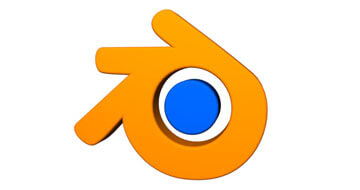
| Starting price | Free |
|---|---|
| Pricing model | Free |
| Free Trial | Free |
| Free Version | Open Source |
Bring your gaming vision to life with the best game development solutions. Unleash your creativity and develop extraordinary games.
Find the best value game development solution on SaasGenius.
Are you ready to dive into the exciting world of game development? Then you've come to the right place, as we present you with our carefully compiled list of the best value game development software.

| Starting price | Free |
|---|---|
| Pricing model | Free |
| Free Trial | Free |
| Free Version | Open Source |
Game development software is a development tool that offers a comprehensive set of tools, frameworks, and engines that facilitate the creation, design, and programming of video games. These powerful software solutions enable developers to create immersive gaming experiences, let their imaginations run wild, and bring virtual worlds to life.
Unity remains the most used single game engine, powering 51% of games analyzed that sold at least 1,000 copies on Steam. Unity excels in both 2D and 3D development, offering extensive platform support and a vast asset marketplace. Its user-friendly interface makes it ideal for both indie developers and large studios.
Key strengths:
Unreal Engine accounts for 28% of games analyzed but represents 31% of units sold, indicating stronger commercial performance. Developed by Epic Games, Unreal Engine 5 offers cutting-edge graphics capabilities with features like Nanite virtualized geometry and Lumen global illumination.
Key strengths:
Godot has captured 8% of the market with a 140% increase since 2022, becoming increasingly popular among indie developers. As a completely free and open-source engine, Godot offers a compelling alternative for developers seeking cost-effective solutions.
Key strengths:
GameMaker represents 4% of games but remains a powerhouse for 2D development. Known for its visual scripting interface, GameMaker enables rapid 2D game development without extensive programming knowledge.
Key strengths:
| Platform | Market Share | Primary Engines | Growth Trend |
|---|---|---|---|
| Mobile | Highest market share in 2024 | Unity, Unreal Engine | 48% of global gaming revenue |
| Console | Expected highest CAGR | Unreal Engine, proprietary | Growing emphasis on visual fidelity |
| PC | Mature market | Unity, Unreal, Godot | Cross-platform integration |
| VR/AR | Emerging | Increasing adoption across industries | Healthcare, education applications |
Game development software prices vary based on factors such as the complexity of the tools, features offered, and licensing options. The pricing landscape has evolved significantly, with various models catering to different developer needs:
Unreal Engine offers an Enterprise program at $1,500 per user per year with premium support and custom terms. Many engines provide tailored solutions for large studios with specific requirements.
Cross-Platform Development Demand: The shift toward cross-platform gaming has fueled demand for versatile game engines, with companies like Unity and Unreal Engine leading this market. Developers increasingly need tools that allow seamless gameplay across consoles, PCs, and mobile devices.
Mobile Gaming Expansion: The popularity of mobile gaming, particularly in regions like Asia-Pacific, has further propelled the market. Smartphones becoming more powerful drives demand for engines that efficiently optimize games for mobile platforms.
Beyond Gaming Applications: Virtual reality (VR) and augmented reality (AR) applications have found uses beyond gaming, particularly in healthcare, education, and architecture. This diversification opens new revenue streams for game engine providers.
For Beginners
For Professional Studios
For Indie Developers
Modern game development requires seamless integration with broader development software ecosystems. Teams benefit from tools that work alongside project management software for coordinating complex development cycles.
The rise of AI-powered development tools is transforming how developers approach game creation, with engines increasingly incorporating machine learning capabilities for asset generation and gameplay optimization.
AI Integration: The integration of AI for enhanced gameplay and character realism is an evolving trend that promises to redefine player experiences. Game engines are incorporating AI tools for procedural content generation and automated testing.
Cloud Gaming Impact: The expansion of cloud gaming services has propelled demand for game engines that can optimize experiences for cloud environments. This trend accommodates audiences without high-end gaming hardware.
Enterprise Adoption: Industries beyond gaming—such as automotive design, film, and architecture—are adopting game engines for simulation, contributing to 22% of total engine revenue. This diversification strengthens the market foundation.
We use a detailed rating methodology to evaluate game development software. Our ratings take into account factors such as features, ease of use, community support, and overall performance. We have developed a custom rating system called The Genius Score, which ranges from 0 to 100, with 100 being the highest rating. The Genius Score combines external reviews and internal testing to provide a comprehensive rating. For a more complete understanding of our rating methodology and to explore the detailed ratings, we invite you to visit our full rating methodology page.